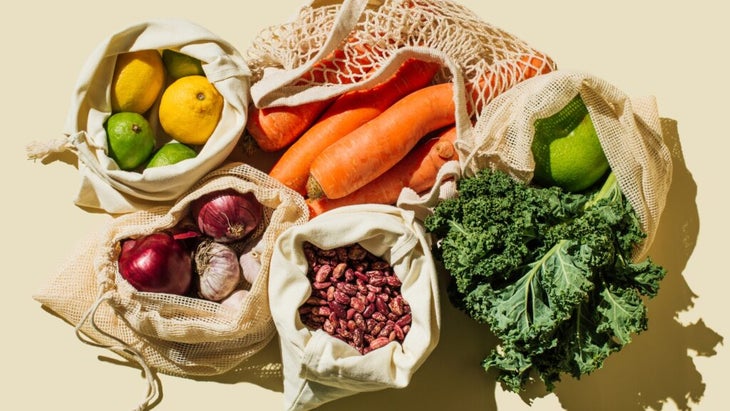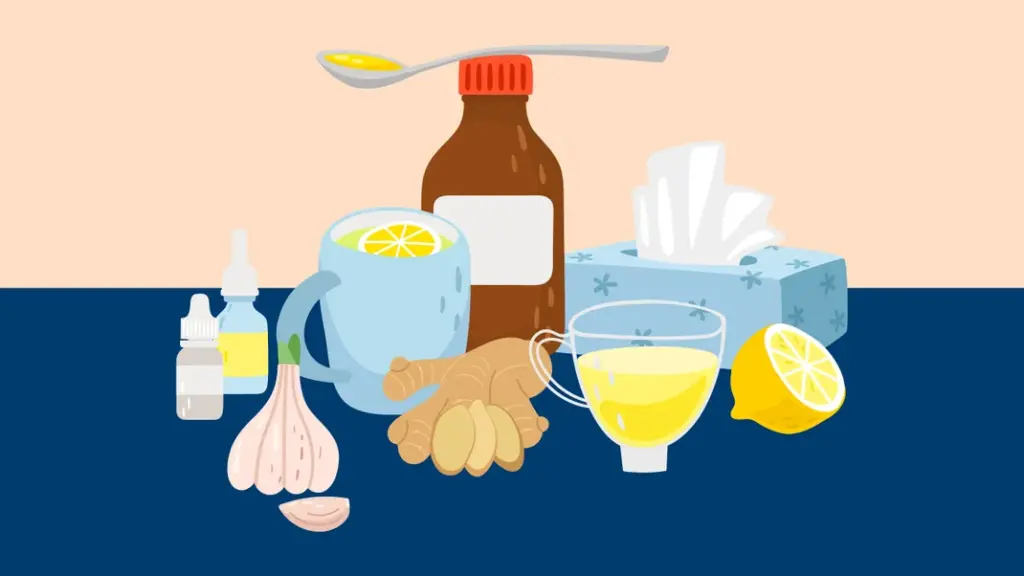No products in the cart.
Outdoor Adventure
Stop Falling for These 5 Immunity-Boosting Myths
This article was originally published on Clean Eating.
If you don’t want an aching throat, stuffed-up sinuses or any of the other hallmark symptoms of cold and flu season, you’ve got to get your immune system in shape. There are plenty of tips, tricks and even over-the-counter remedies that promise to give you better immunity – but that doesn’t mean you should use them. It might surprise you, but some of the best-known immunity-boosting advice is nothing more than a myth.
We’re busting some of the most common immunity myths. Get the facts on how you should eat, fine-tune supplements and adjust your lifestyle to help keep colds, flus and other illnesses at bay.
1. Your first step when getting sick is to load up on vitamin C
One of the most prevalent immunity myths out there? Taking a whole bunch of vitamin C will kick a cold before it even begins, or shorten the cold’s lifespan if you’re already sick.
While vitamin C is a great natural immunity booster, it isn’t exactly the cure-all it’s often advertised as. This nutrient does play an important role in immune function, and taking vitamin C supplements can be beneficial. But you don’t want to overdo it, especially if you’re planning to dramatically up your vitamin C intake.
More isn’t always better when it comes to vitamin C. Your body can only absorb so much – and the rest just goes to waste. Stick to the daily recommended dose for adults, which is 60 to 95 milligrams, and don’t go above the upper limit of 2,000 milligrams per day. Getting too much vitamin C can cause problems of its own like nausea, headaches and vomiting.
Plus, research has shown that taking huge doses of vitamin C supplements doesn’t actually help you fight off illness. While this nutrient can be beneficial for immune health overall, it doesn’t have any apparent advantage when you’re trying to keep colds at bay.
2. You should take a whole lot of zinc while you’re sick

Here’s a myth that’s often found alongside the previous: You’ve got to take more zinc if you want to shorten a cold.
Zinc, like vitamin C, can have a positive effect on your immune system. It can help with everything from wound healing to immune cell function. And it’s often touted as one of the best minerals for slashing a cold’s typical lifespan to help you feel better faster.
However, zinc isn’t exactly the cold-curing powerhouse you might think it is. While a research study from 1984 did show that zinc supplements may be able to reduce a cold’s severity, more recent results are mixed. As the Mayo Clinic explains, an analysis of multiple studies found that taking zinc supplements within 24 hours of the first signs of cold may reduce the length of your illness by one day. But all of the studies reviewed were limited – they featured too few participants, used different dosages and forms of zinc, and supplemented zinc for varying amounts of time.
So, there’s no truly conclusive proof that zinc will zap your cold in its tracks. It isn’t a bad idea to take zinc – but there’s no reason to go overboard. Large amounts of zinc can be toxic to the body, so make sure you stick with the daily recommended amount for adults to be safe and get what your immune system needs. 8 milligrams for women and 11 milligrams for men daily is just right.
There’s one more must-remember tip about taking zinc. You don’t want to take this supplement on an empty stomach. Doing so can cause nausea – an added symptom you definitely don’t need if you’re already suffering from a cold or the flu.
3. Citrus fruits are the only immunity-boosting superfoods
Citrus fruits are rich in vitamin C, which we know is a much-beloved immunity-boosting nutrient. But just like you learned above, vitamin C isn’t the be-all, end-all for your health and your immune system’s strength. And it’s certainly no cure-all for colds and flus.
Many people turn to citrus fruit in an effort to increase their vitamin C intake naturally. But while the citrus family does offer a lot of vitamin C, it isn’t the only immunity-boosting powerhouse. There are plenty of other immunity superfoods that can deliver the nutrients you need to stay healthy even during cold and flu season.
Citrus fruits contain plenty of vitamin C – a 100-gram serving of lemon, for example, provides 53 mg while a 100-gram serving of oranges offers 71 mg. But there are other foods, including meat and veggies, that can offer just as much of this key immunity nutrient. Here’s a sample of some other awesome options rich in vitamin C:
- Yellow bell peppers, which offer 342 mg per pepper
- Red bell peppers, which offer 152 mg per pepper
- Guavas, which offer 376 mg per 1 cup serving
- Strawberries, which offer 97.6 mg per 1 cup serving
- Kale, which offers 93.4 mg per 100 gram serving
Plus, don’t forget that no fruit, veggie or any other food is a cure-all. While vitamin C is a good nutrient to look for, you can also find immunity helpers in foods like chicken (which is rich in zinc as well as vitamin B6), carrots (which contain vitamin A) and even bone broth. It’s a good idea to eat a balanced diet so your immune system gets every one of the nutrients you need for great overall health.
4. Food or supplements alone will improve your immunity
Your diet definitely plays a role in your immune system’s health and function. But believing that you can simply eat a ton of immunity-boosting foods – or take a bunch of immunity-strengthening supplements – to stay healthy, that’s a myth.
While a diet rich in immunity-friendly nutrients is crucially important for keeping your immune system strong, there are a whole bunch of lifestyle factors that can impact your health. And if your lifestyle isn’t also supporting your immune system, you could wind up canceling out all the good that food and supplements can offer.
Sleep and stress are two of the biggest lifestyle factors to pay attention to. If you aren’t getting enough sleep, you’re weakening your immune system, potentially causing inflammation and stressing yourself out. Try our tips to get a better night’s sleep every time you head to bed. And when it comes to stress, missing out on sleep can lead to increased cortisol (the stress hormone). So if you’re already feeling stressed out by work, your busy schedule or your social life, you’ll also weaken your immune system and up your odds of getting sick. Try creating a calming, relaxing ritual at home with essential oils, meditation or other stress-soothing activities you enjoy.
Additionally, it’s another myth that exercising isn’t good for your immune system. Exercise is actually one of the best ways to boost your immunity – working out helps combat stress and benefits your overall health. Try to fit in regular exercise so you’re getting your heart pumping each and every day, even if you’re taking walks or sticking with short bursts of intense activity.
5. Only fresh fruits and veggies can give your immune system a boost

Sure, fresh fruits and vegetables are fantastic for delivering the nutrients you need, whether you’re targeting your immune system or other health needs. But that doesn’t mean you should only consume fresh produce – there are other forms that can offer just as many essential nutrients, and they won’t spoil as quickly.
It’s tough to get your hands on quality fresh produce in the colder months. But you shouldn’t worry about reaching for canned veggies or frozen fruit. It’s a common immunity myth that only fresh produce will do. Both canned and frozen fruits and vegetables are great sources of nutrients, and they can help you ensure you’re getting plenty of healthy variety into your diet.
Plus, as Tufts University explains, frozen can be even better than fresh in some cases. Research has discovered that frozen produce of all different varieties have almost identical nutritional value compared to their fresh counterparts. And while fresh produce can lose vitamins after just 5 days inside your fridge, frozen fruits and veggies maintain their freshness and won’t lose any nutrients. In tests, frozen fruits and vegetables were found to have higher levels of vitamin C – a key immunity booster – along with more antioxidant compounds, lutein and beta-carotene than fresh produce after refrigeration.
Canned fruits and vegetables are similar to frozen varieties. The produce is picked at just the right ripeness, and the nutrients are essentially “locked in” during the canning process when the fruits and vegetables are preserved. This leads canned foods to keep their high nutrient levels regardless of their time on your shelf. Some research has even suggested that eating a good amount of canned fruits and veggies in addition to your usual fresh produce can deliver higher levels of essential nutrients than opting for fresh alone.
Just make sure you’re choosing canned fruits and vegetables that don’t contain additives so you’re getting the nutrients you need without anything else. Look for canned produce in its simplest form, with no additives included in the mix. And don’t forget about BPA. While some canned food manufacturers have begun phasing BPA linings out of their canned goods, it’s still possible to pick up canned produce that includes BPA – so take a close look for a Proposition 65 warning label that can indicate the presence of this harmful substance.
So, while fresh is usually best, it isn’t the only option for a healthy immune system. If you want to stock up while you’re at the store, canned and frozen produce are both solid choices. Or, if you aren’t going to eat your fresh produce ASAP, opt for frozen or canned so you can lock in nutrients without worrying about freshness.
Source link

